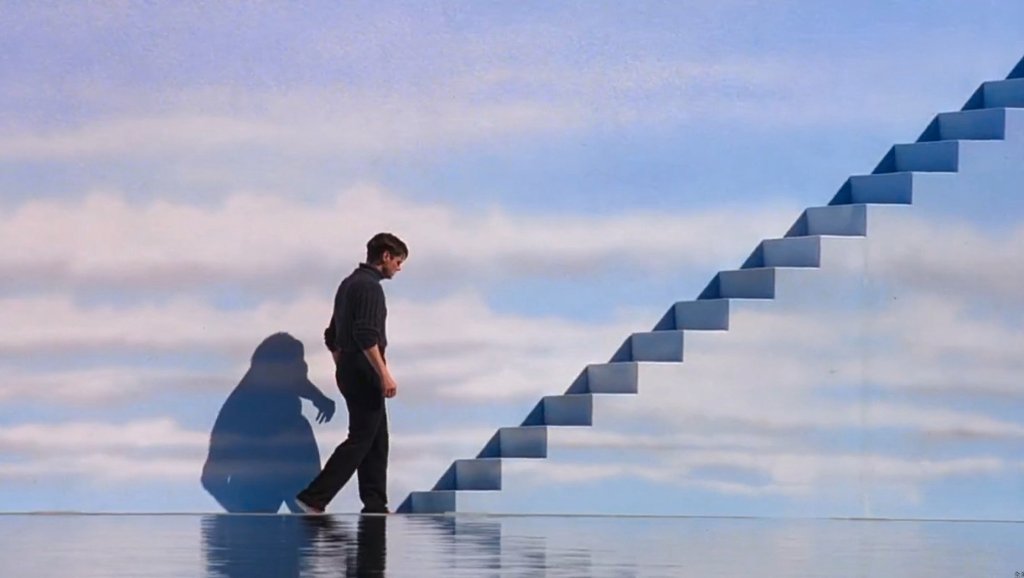By: Anna Prisco
While an ostensibly funny movie, there’s something about The Truman Show that makes us uncomfortable—we might shyly ask, but could this all be happening to us? For some, this question has taken on a philosophical tone, becoming what I’ll dub ‘Truman Show skepticism’. We see a coming-of-age Truman Burbank start to come around to the notion that there is something artificial about his life, which the viewer quickly learns is the fact that he is in a TV show. As the star of the show, all the ‘reality’ he has encountered has been engineered for the sole purpose of interacting with Truman. Having realized this, the movie comes to a victorious end when Truman crosses to the edge of the fictional sea, opening the door into the real world.
But this whole process instills in us a worrisome question: What if we are always being filmed, and all of this has been planned, and we are unaware of it? On the extreme end, the excessive paranoia of being filmed has been termed ‘Truman Show delusions’. NPR’s This American Life features author Zack McDermott’s experience of Truman Show delusions—which recurred, ironically, while he was filming a program about said condition. Although this may be an extreme example, it highlights something that has bothered many viewers. Why are we uniquely scared of being filmed? Why don’t we slide from this fear directly into Cartesian skepticism: worry not at being filmed but at being unable to connect with the external world? Is there philosophical content to this difference, or should we just chalk it up to cultural forces?
I want to sketch out a few characteristics of this fear, a fear I’ll term ‘Truman Show skepticism’. First, it is unverifiable. In the perfect orchestration of the Truman Show (one in which a cast member doesn’t attempt to save the subject), there is no way to know that one is being filmed. Second, it involves a system that is somehow limited. Everything within it checks out, but we cannot know whether or not the system itself corresponds to an external reality. Hence, we are left without proof that we are not the stars of our own ‘Truman Show’.
This Truman Show skepticism doesn’t make sense to me, considered philosophically. It seems as though it should have a false floor under it. If we take the two criteria of Truman Show skepticism, they seem to apply equally appropriately to any sort of knowledge we might claim to have. Our inability to know we are not being filmed rests on the same premises as our inability to know that our surroundings exist in the first place—and isn’t the second the more compelling worry we should turn to? After all, it subsumes the first; any worries that we might have about the authenticity of others and their role in manufacturing our surroundings should slide into the more general fear of an ability to connect with an external world. As a note, I’m taking the external world to include everything outside of ourselves, including the unknowable nature of the intentions of other people. At the same time, it would be inaccurate to say that the Truman Show has not instilled real worry in a lot of people. And it does seem like a philosophical worry—it asks difficult questions about the authenticity of our knowledge and our ability to connect to the world around us. But what is it that drives a wedge between a full descent into skepticism and the fear inspired by ‘The Truman Show’? Could it be the case that ‘Truman Show skepticism’ is not a variant of a Cartesian type, but something else entirely? There’s something uniquely terrifying about ‘Truman Show skepticism’, but does this uniqueness have philosophical content?
Ultimately, The Truman Show introduces a very standard philosophical question (do we really exist?) and combines it with a relevant cultural paranoia to create a hybrid sort of skepticism. The effect of this is compelling—it makes us worried about a frightening problem that had not been illuminated to us before. By making the skeptical question tied intimately with this cultural fear, the movie makes us feel like we have discovered this wholly new philosophical worry. Whether or not this might assure us, if we take a minute to think about it, we see how an old and pervasive fear has been disguised as a new one.

Leave a comment